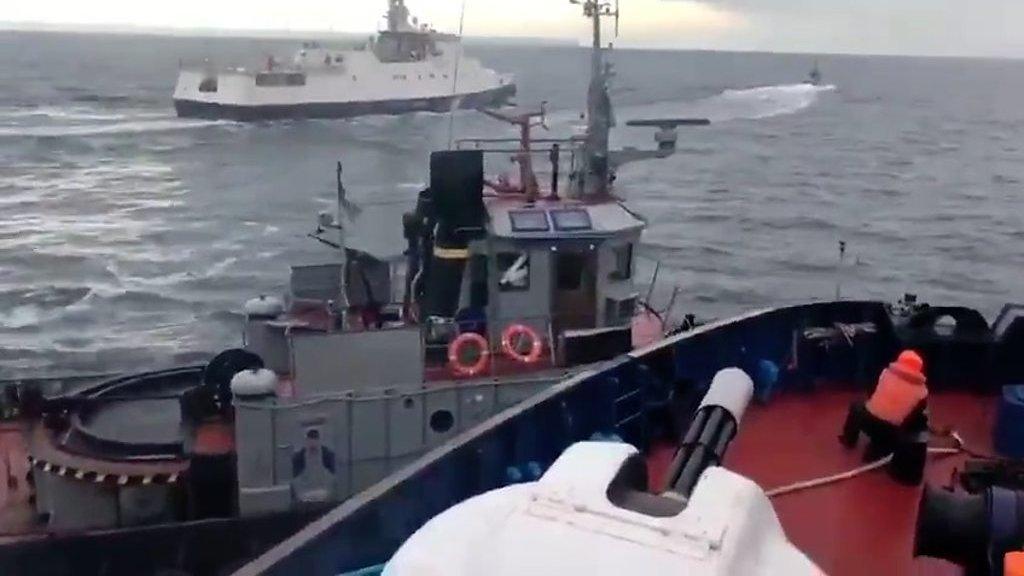Ukraine-Russia sea clash: Trump may cancel G20 Putin talks
- Published
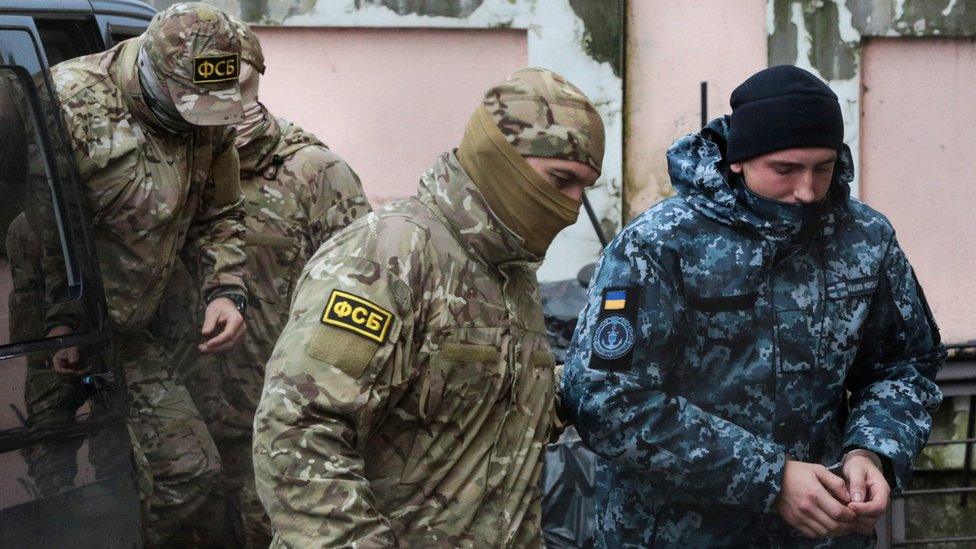
Some of the detained Ukrainians have appeared in court in Crimea
US President Donald Trump says he may cancel a meeting with Russian President Vladimir Putin following a maritime clash between Russia and Ukraine.
Mr Trump told the Washington Post he was waiting for a "full report" after Russian ships fired on and seized three Ukrainian boats on Sunday.
Ukraine described it as an "act of aggression" but Russia said the ships had illegally entered its waters.
Martial law has been imposed in parts of Ukraine, in an unprecedented move.
Meanwhile, the US has urged European states to do more to support Ukraine.
State department spokeswoman Heather Nauert said Washington wanted to see tougher enforcement of sanctions against Russia.
What did Donald Trump say?
Mr Trump and Mr Putin are due to meet on the sidelines of the G20 summit in Buenos Aires later this week.
However, Mr Trump told the Washington Post that the report coming from his national security team would be "very determinative".
"Maybe I won't have the meeting [with Mr Putin]., external Maybe I won't even have the meeting. I don't like that aggression. I don't want that aggression at all," he said.
The two men are scheduled to discuss security, arms control, and issues in Ukraine and the Middle East when the summit convenes on Friday and Saturday, national security adviser John Bolton told reporters.
Why tensions between Russia and Ukraine are so high
How is the crisis playing out?
Russian coastguard ships opened fire on Sunday as the two Ukrainian gunboats and a tug sailed through the Kerch Strait off the coast of Crimea, which was annexed by Russia in 2014. Twenty-four Ukrainians were detained and at least three were wounded in the incident.
A Crimean court later ordered that 12 of the Ukrainians be detained for 60 days. The court is expected to issue rulings for the remaining servicemen on Wednesday.
The FSB security service has since released videos of some of the men making statements. One of them, Volodymyr Lisovyi, said he was aware of the "provocative nature" of the Ukrainian action.
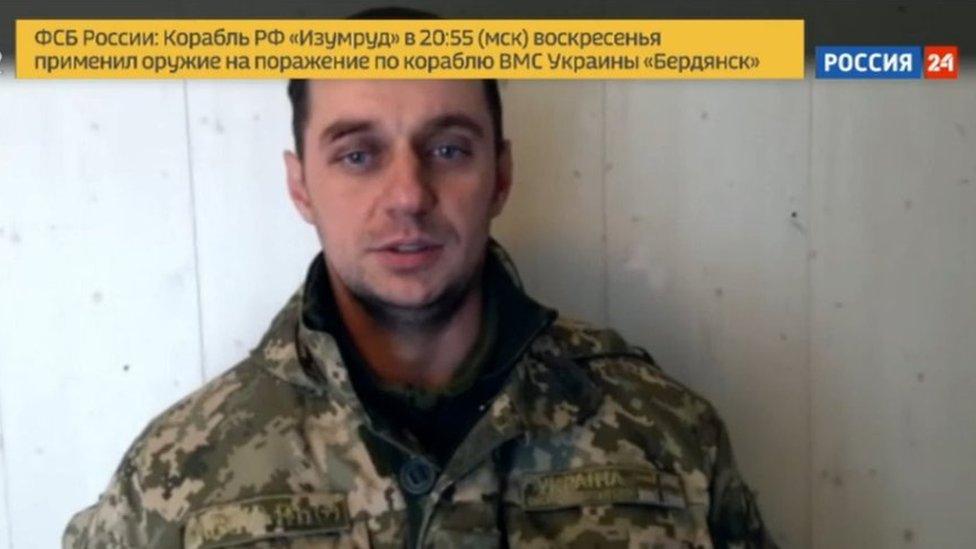
Volodymyr Lisovyi was one of three men who gave statements described as "under duress" by the head of Ukraine's navy
Another, Andriy Drach, said he had been on a gunboat with an order to sail from Odessa to Mariupol.
"We were warned by the border service of the Russian Federation that we were violating Russian law. They had repeatedly asked us to leave the territorial waters of the Russian Federation," he said.
Ukraine's navy commander, Ihor Voronchenko, told Ukrainian TV that the men had given false statements under duress.
"I know those sailors from Nikopol. They have always been honest professionals in their jobs, and what they say now is not true," he said.
The head of Ukraine's SBU security service, Vasyl Hrytsak, confirmed Russian reports that members of the service were on board the boats, but added that it was a "routine counter-intelligence mission" of a type that the Russian navy carried out regularly.
How has Ukraine reacted?
On Tuesday, President Petro Poroshenko said there was a threat of "full-scale war" with Russia.
"The number of [Russian] tanks at bases located along our border has grown three times," he said.
On Monday night, Ukraine's parliament backed President Poroshenko's decision to impose martial law for a 30-day period from 28 November in 10 border regions.
Five of the 10 regions border Russia while two are adjacent to Moldova's breakaway Trans-Dniester region, where Russian troops are stationed. The other three regions border the Black Sea or Sea of Azov close to Crimea.
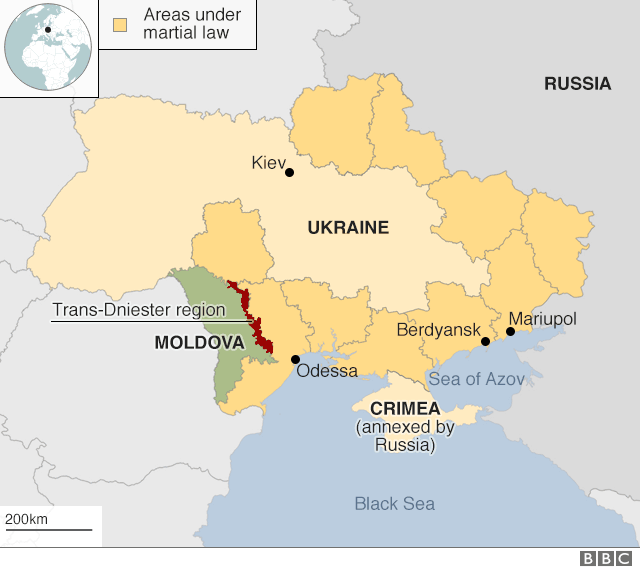

The move to martial law is unprecedented in Ukraine, and gives military authorities the right to ban protests and strikes.
The flare-up is the first outright clash between Ukraine and Russian forces for years, although since 2014 pro-Russian separatists and Russian military "volunteers" have been fighting Ukraine's army in two eastern regions - Luhansk and Donetsk.
Tensions escalated when Russia opened a bridge this year between Russia and Crimea over the Kerch Strait, which leads into the Sea of Azov. Ukraine has two big ports on the northern shore of the Azov sea, and a 2003 treaty allows both countries free access to its waters.
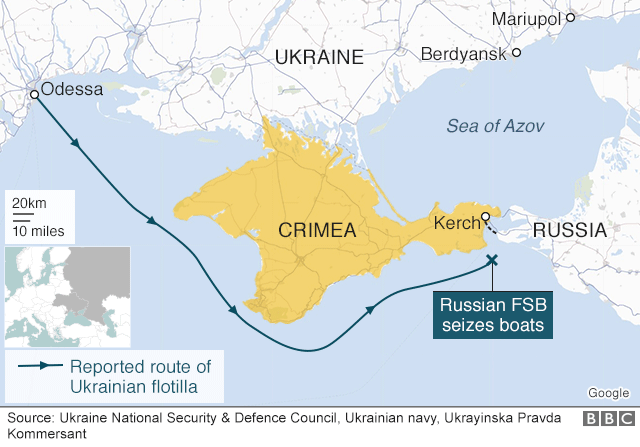

What other reaction has there been?
US Secretary of State Mike Pompeo has said the seizure of Ukrainian ships is a "dangerous escalation and a violation of international law".
The UK condemned Russia's "destabilising behaviour in the region and its ongoing violation of Ukrainian territorial sovereignty".
Taking a call from German Chancellor Angela Merkel, Russian President Vladimir Putin argued that the Ukrainians had "deliberately ignored the rules of peaceful passage in the territorial sea of the Russian Federation", the Kremlin said.
Mrs Merkel had "stressed the need for de-escalation and dialogue," her spokesman said.
- Published27 November 2018
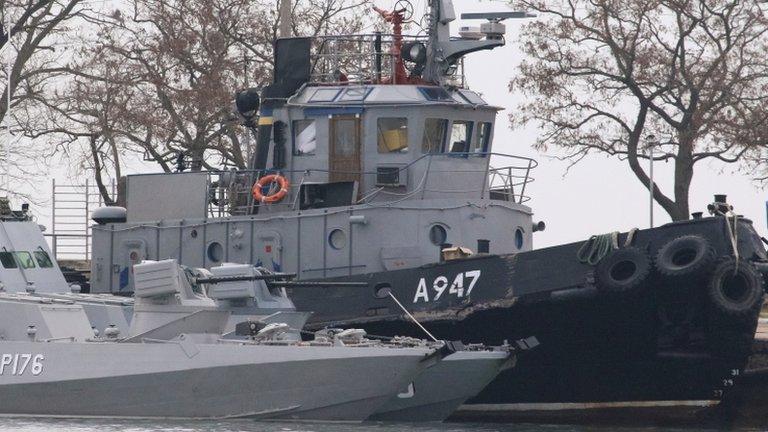
- Published26 November 2018
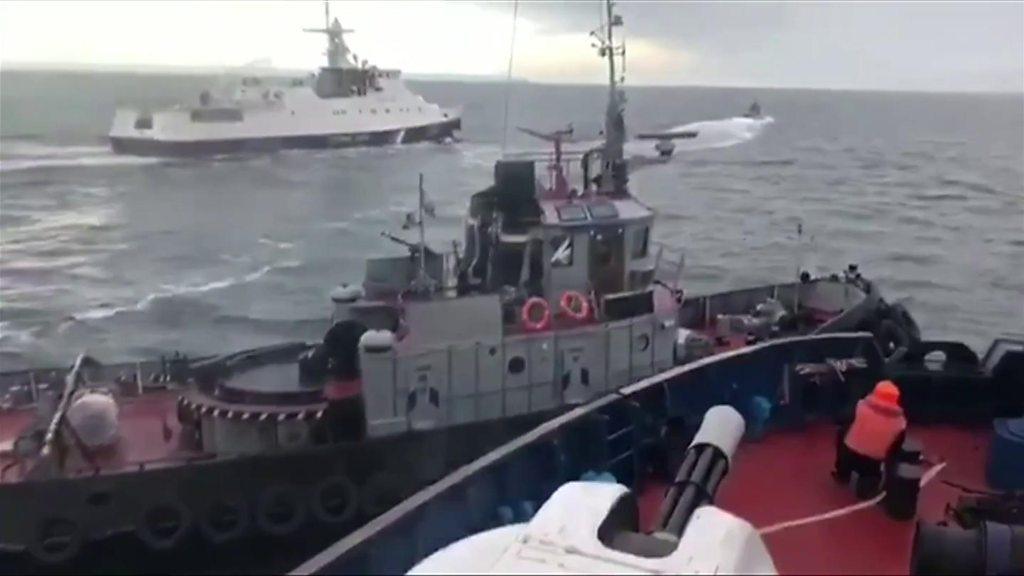
- Published27 November 2018
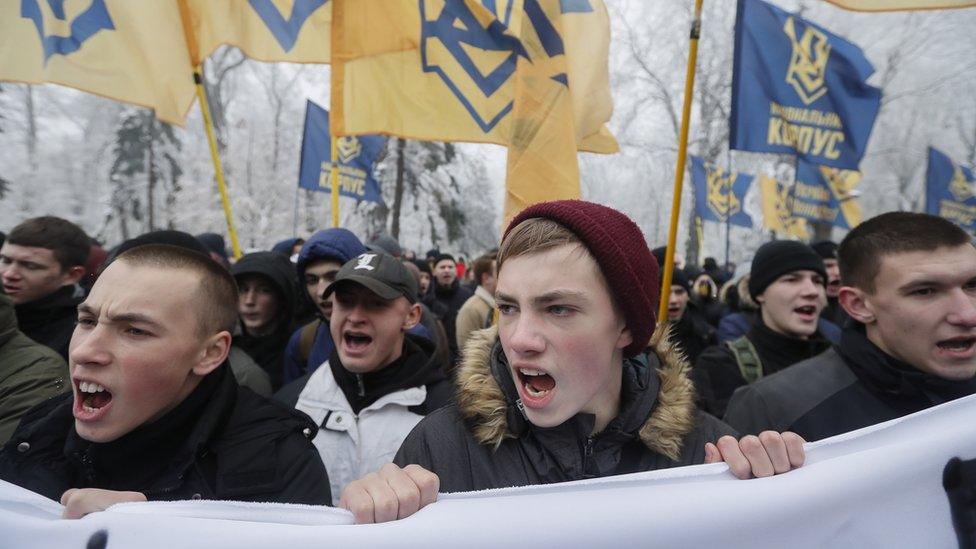
- Published26 November 2018
